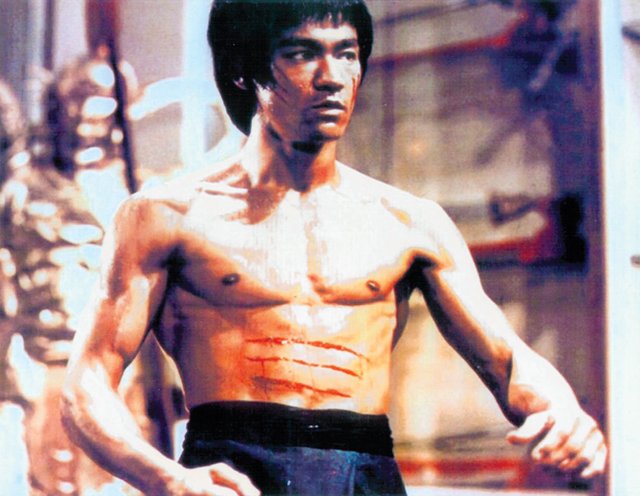Lee
Bruce Lee (1940–1973) was a legendary martial artist, actor, and cultural icon whose influence transcended martial arts, film, and race relations. Born in San Francisco to a Hong Kong opera star father, he spent much of his early life in Hong Kong, where he trained in Wing Chun under the master Ip Man. His passion for martial arts and philosophy began to flourish in his youth.
Lee returned to the United States in his late teens, where he pursued higher education at the University of Washington. While in the U.S., he began teaching martial arts and developed his own martial art philosophy, known as Jeet Kune Do. This style emphasized adaptability, fluidity, and efficiency, moving away from traditional, rigid forms of combat. Jeet Kune Do became a precursor to what is now known as mixed martial arts (MMA).
As a charismatic martial artist, Lee gained attention in Hollywood, landing roles in TV shows like The Green Hornet. However, he struggled with racism in the American film industry, which limited opportunities for Asian actors. Lee eventually returned to Hong Kong, where he became a film sensation, starring in movies like The Big Boss (1971), Fist of Fury (1972), Way of the Dragon (1972), and Enter the Dragon (1973). These films showcased his unique martial arts style and made him a global superstar.
Beyond his fighting skills, Bruce Lee was also a philosopher who integrated Eastern and Western thought. He emphasized self-knowledge, self-expression, and the rejection of dogmatic systems. His teachings resonated with a generation that was questioning traditional authority and seeking personal freedom.
Tragically, Bruce Lee passed away at the age of 32 under mysterious circumstances, just before the release of Enter the Dragon, which would solidify his status as a martial arts legend. His death shocked the world, but his influence remains profound, inspiring generations of martial artists, filmmakers, and individuals striving for personal growth.
Bruce Lee's legacy continues to thrive, representing not only martial arts excellence but also empowerment, breaking barriers of race, culture, and physical limitations.
